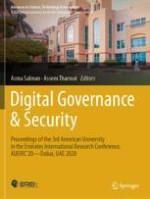This book, and the papers published within it, delves into the topic of governance in a modern, digital age, deliberating upon digital finance, societal security, and digital governance, proving essential to governmental institutions, policymakers, economists, and finally, social educators. The formation of a prosperous and resilient society is, without a doubt, a daunting, monumental task. Addressing people’s needs, maintaining their well-being, ensuring safety from external threats, and implementing a just law system that covers contemporary ways of life are no simple task. Thankfully, the advent of technological advancement helps lighten the heavy burden of governance. The element of interconnectedness brought forward by technological innovation has bridged the gap between society and government, allowing for faster interactions through the digitalization of naturally bureaucratic processes, and the utilization of digital finances.
